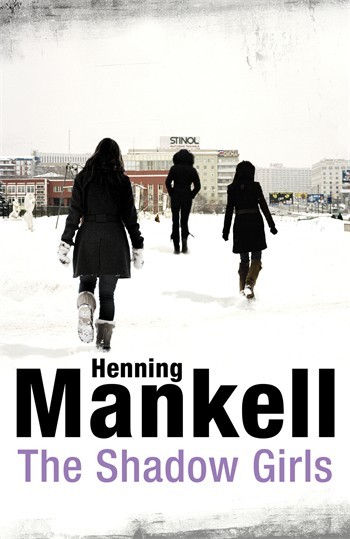Henning Mankell is a Swedish writer of books dealing with world issues and crime novels that feature the detective Wallender. "The Shadow Girls" veers into the plight of illegal women immigrants entering Sweden and the invisible and desperate lives they must lead to escape capture and arrest.
The women's stories are told when they meet main character Jesper Humlin, a successful poet pressured by his editor to write a crime novel to sell more books. Humlin refuses to agree and becomes intrigued by telling the stories of these young women. It’s almost absurd that his editor starts a publicity campaign right away for the book Humlin won’t write.
The novel begins with the story of a woman refugee who calls herself Tea Bag. Many refugees have destroyed every bit of their past — name, identity, place of origin — in hopes of presenting themselves as more desirable for entry into another country. When an interrogating officer asks this woman her name, her eye falls on an empty tea cup on his desk and she replies, “Tea Bag.”
Her wiles at survival convince her that Sweden is a desirable country for refugees and that becomes her aim.
The captivating stories of the women flow beautifully although the subject matter is upsetting. The narrative about Humlin’s life, including a manipulative mother, a lover who is bored with him, and other downers, transitions into long passages in italics dealing with the girls’ stories that are written in a more literary and readable manner. After each one the narrative shifts back to Humlin’s life.These portions of the book feature what seem to me rather clipped dialogue between Humlin and his friends, but perhaps the fact that this is a translation is responsible.
Humlin makes sincere attempts to meet and talk with the girls, but they often fail to turn up, or vanish suddenly when they do meet. The title “Shadow Girls” is appropriate.
These girls have suffered immense cruelty, sometimes at the hands of their own fathers or brothers, but consistently from the men who lie and offer them jobs and a better life. The transition from the personable, well-dressed man who talks them into leaving, into the rough-looking men who pile them into trucks and order them into prostitution as soon as they reach the destination (in this case Sweden) is horrifying.
It was hard for me to separate the three girls one from another in reading their stories, but the author suggests they are woven from many people’s stories.
The book is an eye-opener revealing the horrible circumstances in the lives of victims of human trafficking. I wish the protagonist had been a more sympathetic character; it would have strengthened the story. As it is, it’s hard to work up much feeling for him and his problems with his lover, his mother, and his editor, even though his desire to make known the plight of these girls is strong.









